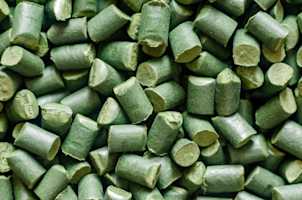Ida Tarko
MSc (Tech.) in Chemical Engineering
Polymers & Plastics

Ida Tarko works in Measurlabs' organic materials team, coordinating testing projects that focus on determining the barrier properties, biodegradability, thermal characteristics, and other key properties of polymers and other organic materials.
Ida holds an MSc in chemical and process engineering from Åbo Akademi University. During her studies, she specialized in bioproduct technology and advanced materials. She completed her master’s thesis for the pharma giant Bayer and also worked at its R&D and quality control departments before joining Measurlabs.
Ida’s latest articles in our blog
Comparison of thermal analysis techniques used in material characterization
Several techniques, such as DSC, TGA, and TMA, can be used for thermal analysis, depending on the studied properties, temperature range, and sample type.
Keep reading >

Biodegradability and compostability testing by national and international standards
Companies should provide evidence, such as third-party laboratory test results, for biodegradability and compostability-related product claims.
Keep reading >

